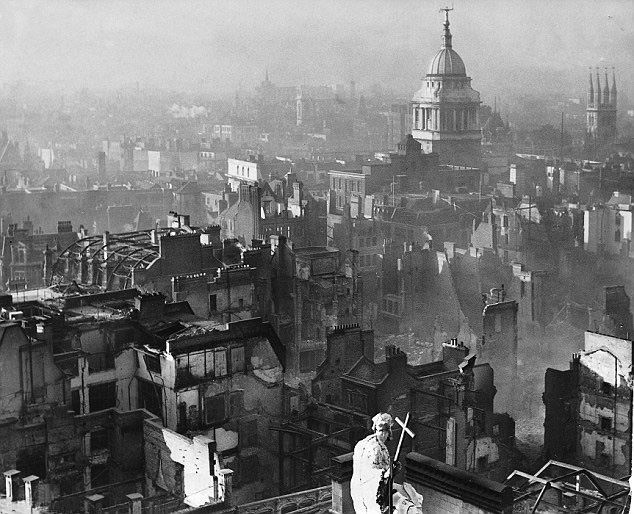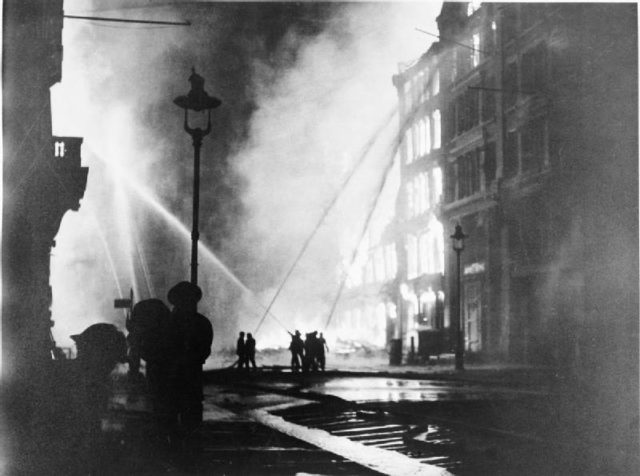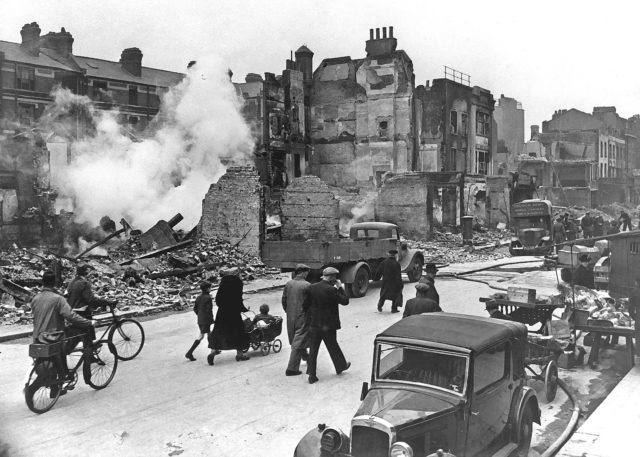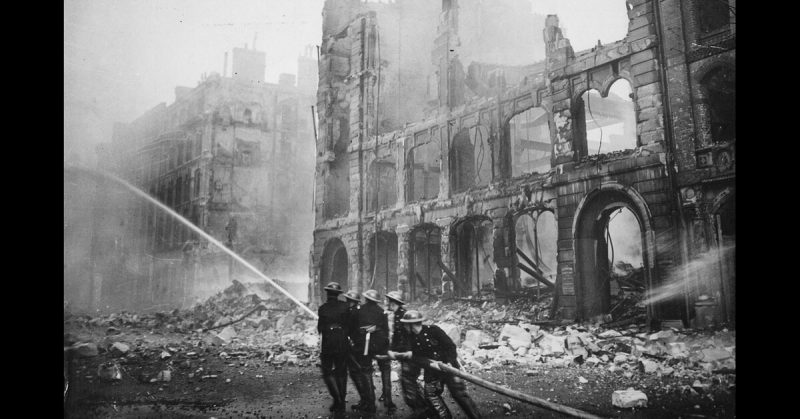The bombing campaigns of WWII put a massive strain on firefighters. In both Britain and Germany, campaigns of deliberate destruction set cities alight. Not just factories and military bases but residential streets went up in flames.
To cope with this, volunteers joined professional fire crews to tackle the blazes. These men risked their lives in exhausting work to protect the cities they loved and the people who lived in them.
For British fire crews, the most intense period came during the Blitz of 1940 and the most intense bombing in London.
A Son of Immigrants
Harry Errington was one of the volunteers who signed up to help keep London from burning.
Born on August 20, 1910, Harry came from the London neighborhood of Soho. His parents were Polish Jews. The anti-Semitism that would reach its terrifying climax in the Holocaust was already rife in the late 19th and early 20th centuries. Countless Jews left hostile homelands to safer homes in the cities of Britain and America. Like Harry’s family, many changed their names to fit in with their new surroundings. The Ehregott family became the Erringtons.
Harry was educated at Westminster Free School. He then joined his uncle’s tailoring business, becoming a master cutter. He would work for the firm until retirement in 1992, during which time they went from a small business to a Savile Row firm.
In his spare time, Harry was a basketball fan, coaching, and managing teams.

The AFS
From 1938 onward, the British were preparing for the possibility of war. Zeppelin bomb raids had targeted British cities during the First World War, and now there were long-range bomber planes. Air raid shelters and warning systems were set up.
One of the greatest threats in an air raid was fire. Bombs sent buildings up in flames. When the aim was the destruction of cities, incendiary bombs were often used, and these would be the majority of the devices that fell on London.
A new organization was formed in late 1938 to counter the threat of fire. The Auxiliary Fire Serice (AFS) would supplement the London Fire Brigade in times of war.

AFS members were volunteers. During the day, they worked in civilian jobs such as Harry’s tailoring. At night, when the bombs fell, they became firemen.
With so many other drains on national resources, the AFS were often short on equipment. Many of their fire engines were taxis; painted gray to show that, like their drivers, they now had a second job protecting the city.
Bombs Over Rathbone Street
In September 1940, London was suffering heavily from German bomber raids. These attacks took a heavy toll on firefighters, with several thousand injured and over 300 killed during the war.
On September 17, Harry was on duty at Rathbone Street AFS Sub-Fire Station. This grand title was given to an air raid shelter underneath a commercial building in Harry’s native Soho. It was a setting as unassuming as Harry himself.
As on so many other nights that month, bombs were falling on Soho, and the firefighters were waiting to hear where they would be needed. This time the fire was coming to them.
Just after midnight, a high explosive bomb hit. The building collapsed, and the ruins caught fire. Seven firemen and thirteen other people were killed.
Down in the basement, Harry was knocked out by the blast.

Harry to the Rescue
Harry awoke to find himself lying in the ruins of the bombed-out basement. The fire was threatening to engulf the whole building.
Following his instincts, the injured Harry headed for the emergency exit, but cries for help caught his attention. Two of his watchmates were trapped in the rubble, the flames advancing on them.
Harry turned back. Soaking a blanket in water, he improvised protection from the flames, draping the sodden wool across himself. Harry found a fire ax and freed the first man from the rubble, burning his skin as he used his bare hands to move bricks aside.
His friend was too injured to walk so with burnt hands, Harry carried him up the stairs, through a courtyard, and into the street.
Back in the basement, the second man was trapped beneath a heavy radiator. With flames and smoke growing around him, Harry rescued him and again carried his friend to safety.
All three men had been burned in the fire. All three were determined to continue their vital service. All three were back on duty with the AFS within weeks.

Celebrating a Hero
During the Second World War, only three firemen were awarded the George Cross. Of these, only one was from London, and that man was Harry Errington. In October 1942 he stood before King George VI for his investiture.
After the war, Harry kept in contact with the firefighters. He remained friends with the men he had saved and their families. He often visited his local Soho fire station. For his 90th birthday, the Red Watch at the station threw a party for the wartime hero.
In December 2004, Harry died at the age of 94. The next month, a motion in Parliament celebrated his life, his courage, and all the firefighters who lost their lives in the Blitz.
In a war driven by militarism, cruelty, and racism, a peaceful son of immigrants had risen to protect his family’s new homeland. His memory lives on.
Source:
Gordon Brown (2008), Wartime Courage.
